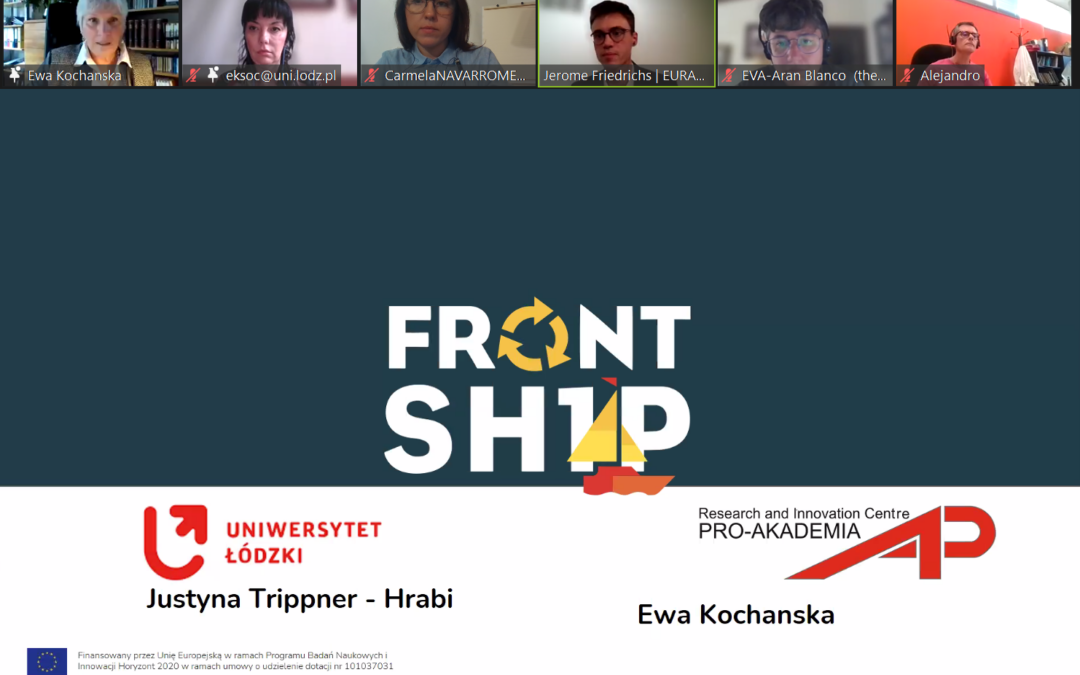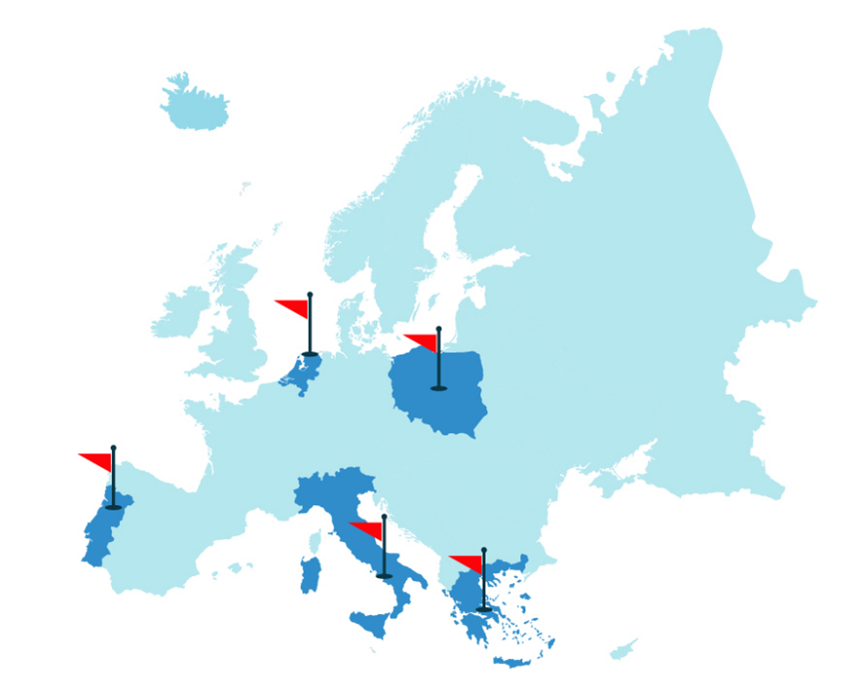Authors: Aleksandra Wolniak, Aneta Tylman, Łukasz Waszak & Marcin Podgórski
Work package 2 of the FRONTSH1P project is currently dealing with a number of issues and faces several obstacles and challenges ahead. Some of them we present in this article.
Legal Incentives & Barriers
It is the task of the intercommunal federation to establish and operate a comprehensive municipal waste management system. In current times, cooperation in the field of circular economy is an opportunity to implement and seek new ways of managing primary and secondary raw materials. Incentives for the development of the municipal waste management system are, firstly, the more than 10 years of experience of the project partners in waste management cooperation. Secondly, the knowledge base in the field that the actions to harmonise waste collection regulations have created. Thirdly, cooperation promotes the achievement of high recycling standards mandated by national legislation. Fourthly, appropriate policies for a given area promote the creation of new jobs. Finally, local authorities gain the possibility of becoming strategic partners in issues such as the circular economy at the international level.
Research has shown that Polish local authorities see their role as active stakeholders in the secondary raw materials market. This role is related to the fact that they are the legal owner of the municipal waste collected from citizens. At the same time, it appears that the development of eco-design, supported by the Commission’s initiative on the relevant directives, may lead to the creation of value chains between the participants of the secondary raw materials market, with the contribution of public bodies at the current stage of excellence. Therefore, the role of local and regional authorities in the circular economy may need to be redefined. Currently, this role should be considered as a transitional phase that requires the exchange of best practices and initiatives between project partners. In this respect, further research within the project is advisable.
Citizen Engagement
Defining and setting action plans for citizen engagement in the circular economy is one of the cross-cutting activities of the FRONTSH1P project. Citizen engagement will be part of the solutions related to policy, business, social, environmental and practical recommendations and will be included in each CSS.
Here a first definition of citizen engagement:
Citizen engagement in the circular economy means the conscious participation of citizens (households) in direct and supportive actions (processes) for inclusion in the circular economy cycle.
Direct action refers to the activation of specific citizen behaviours for participation in the circular economy. We define this as involvement in the process to:
- sharing
- leasing
- reusing
- repairing
- refurbishing
- recycling
Participation in supporting activities refers to the involvement of citizens as participants/recipients of, amongst others:
- actions raising awareness and knowledge about the circular economy
- activities involving citizens in regulatory processes
- activities initiating specific behaviours in the area of the circular economy through external factors, e.g. legal, economic, social
Awareness and knowledge-raising activities are targeted at citizens as recipients and include:
- information activities
- educational activities
- promotional activities
Awareness and knowledge-raising activities are carried out by:
- national government
- local government
- NGOs
- companies
- educational institutions
Inclusive activities in regulatory processes involve citizens as participants in the law-making process at national and local level and may include:
- citizen participation in consultation processes (plans, strategies, programmes, concepts)
- citizen participation in legislative initiatives (e.g., legislative initiative)
- citizen participation in advocacy and lobbying activities (e.g., petitions to the authorities)
Initiating activities may include a range of regulations and solutions, which may be introduced by local and central government, enterprises and social partners to encourage/punish citizens for participation or lack of participation in the circular economy. Initiating measures may include:
- introduction of a levy system by national/municipal authorities
- introduction of a deposit system for the use of specific packaging
- societal trends in the area of GOZ
- other
The next step in the work on citizens engagement in the circular economy will be to define specific actions and indicators to measure engagement.
Fundraising
Nowadays, there are open calls for grants distributed directly by the European Commission. International consortia, SMEs, and small midcaps have the opportunity to receive funding through three main channels set up by the European Innovation Council (EIC) and in consortia provided by the European Institute of Innovation and Technology (EIT). The EIC Accelerator tool targets SMEs and midcaps with projects at 5/6 TRL. Projects will be based on a theme alone and in 2022 there will be open calls and thematic challenges that include pathways: Technologies for Open Strategic Autonomy and Technologies for ‘Fit for 55’.
For consortia of companies, or scientific and industrial consortia from at least three different countries participating in Horizon Europe and having projects at the first TRLs, there is the EIC Pathfinder. This tool is used to cover the research risk and can cover 100% of the eligible costs incurred. There are six challenges for the Pathfinder in 2022, including: carbon dioxide and nitrogen management, and valorisation. Once the results of the R&D work under the EIC Pathfinder have been achieved, there is the possibility to apply for a grant under the EIC Transition. This instrument funds the implementation of R&D work under the EIS Pathfinder that is in the proof-of-concept phase. Entrepreneurs can also use EIT funds in one of the 8 thematic areas. These funds are allocated by the clusters to their members, but in many cases open recruitment is planned for companies that fall within the scope of the EIT knowledge communities, each of which focuses on a specific global challenge.



